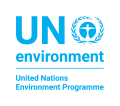Project Database

Climate change can only be stopped through the global transformation of the economy and lifestyles. Corresponding goals have already been anchored in the 2030 Agenda for Sustainable Development and the Paris Climate Agreement. However, the ensuing commitments present a challenge for many countries and require comprehensive solutions.
The Inclusive Green...

The South African-German initiative Skills for Green Jobs aims to improve the distinct, institutional and societal frameworks in order to provide qualified experts and adequate technologies for establishing a green economy.
On the German side, the Gesellschaft für Internationale Zusammenarbeit (GIZ) is carrying out the implementation on behalf of the...

The Skills Development for a Green Economy (SD4GE) Programme focuses on supporting the Dual System Pilot Project (DSPP) to help the Department of Higher Education and Training (DHET) to replicate dual occupational programmes. It is a pilot of an integrated dual training programme for electricians and plumbers: it will combine...
Many developing countries and emerging economies are currently defining country-specific strategies for their economies to become more inclusive, climate-friendly, resilient and resource-efficient. However, governments often face strong economic and social pressure, and transformational policies are difficult to advocate – unless proven socially and economically viable.
This is where the project...

The project “Enhancing South-South Cooperation – Building the Capacity of Developing Countries to Promote Green Economies” was based on the often-articulated wish of developing countries to exchange and share good practices with other countries of the South. The project had two key objectives. The first was to facilitate knowledge exchange...
The Environmental Performance Reviews (EPRs) identify good practices and make recommendations to improve the reviewed country’s environmental policies and programmes.
Environment Ministers of OECD member countries in January 1991, called on the OECD to review environmental performance in member countries. This mandate was confirmed by the OECD Council meeting at...

Available evidence and the decisions adopted by Parties to the Convention on Biological Diversity (CBD) indicate that a significant gap remains in finance for biodiversity management, for countries to drastically scale up their efforts and achieve the 20 Aichi Targets defined in the CBD’s Strategic Plan for 2011-2020. A preliminary...

Amongst others, the main achievements of the project: Policy, Macro-economic Assessments and Instruments to Empower Governments and Business to Advance Resource Efficiency and Move Towards a Green Economy include:
1) Global analysis using system dynamic modelling and sectorial analysis providing the economic case for investing in the sectors of agriculture...
PAGE aims to contribute to the transformation of national economic structures in developing countries with the ultimate intention to achieve environmental sustainability, decent job creation, reduced poverty, and improved human well-being. PAGE is designed as a multi-year initiative that initially will deploy the expertise of its key partners to progressively...
